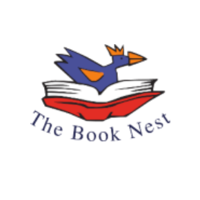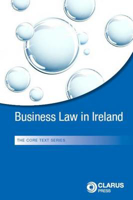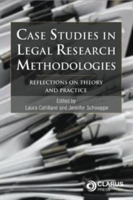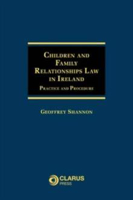Cookies help us deliver our services. By using our services, you agree to our use of cookies.
Shopping cart
Search
Clarus Press Ltd
A GUIDE TO MOOTING IN IRELAND
€35.00
A Guide to Mooting in Ireland provides a user-friendly handbook on mooting that is specifically tailored for those involved in mooting in Ireland. Mooting can help to build important skills in research, drafting and the construction of persuasive arguments that are relevant both to academic study and professional life, within and outside of law.
ARREST, DETENTION AND QUESTIONING
€90.00
Arrest, Detention and Questioning: Law and Practice examines the law and practice of some of the key functions of policing in Ireland in relation to Garda investigations and a person's rights in custody.
BUSINESS LAW IN IRELAND
€39.00
Divided into six general parts, with 25 chapters, this book commences with an introduction to the law followed by Company and Commercial Law, European Union Law, Law of Tort, the Law of Contract and Employment Law.
CASE STUDIES IN LEGAL RESEARCH METH
€38.00
Contributors have written about the methods used in their research, outlining the choice methodology; describing methods used; detailing advantages, disadvantages and challenges to the approach taken; discussing any ethical considerations that arose in the context of the research; reflecting on the approach taken.
CHILD LAW IN IRELAND
€49.00
This book provides a comprehensive and accessible analysis of the Irish child law system. It addresses a wide range of child law topics including children's rights; parentage; donor-assisted human reproduction and surrogacy; guardianship, custody and access; child protection; representation and participation; and education.
CHILDREN AND FAMILY RELATIONSHIPS LAW IN IRELAND
€199.00
The Children and Family Relationships Act 2015 is the most comprehensive amendment to the law on children and family relationships in many decades. The author in Children and Family Relationships Law in Ireland: Practice and Procedure, examines, analyses and explains this new legal regime.
CONSTITUTIONAL LAW
€99.00
As with its popular predecessor, Constitutional Law: Texts, Cases and Materials, Second Edition, follows the casebook method in exploring the general principles and themes of Irish constitutional law. Short excerpts from cases and academic materials are seamlessly integrated with the authors' own expert analysis.







